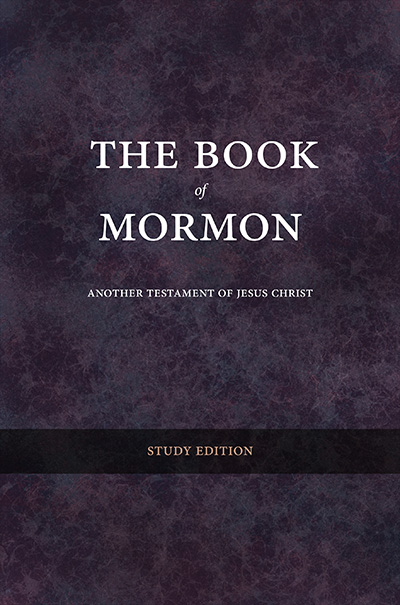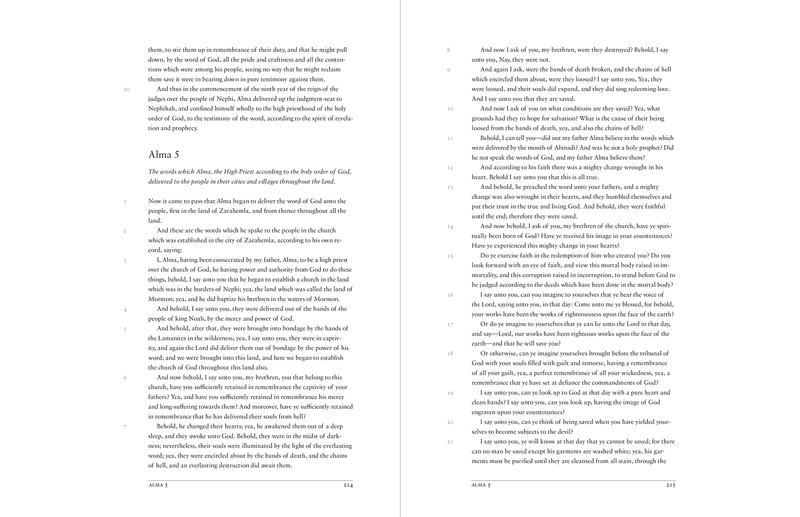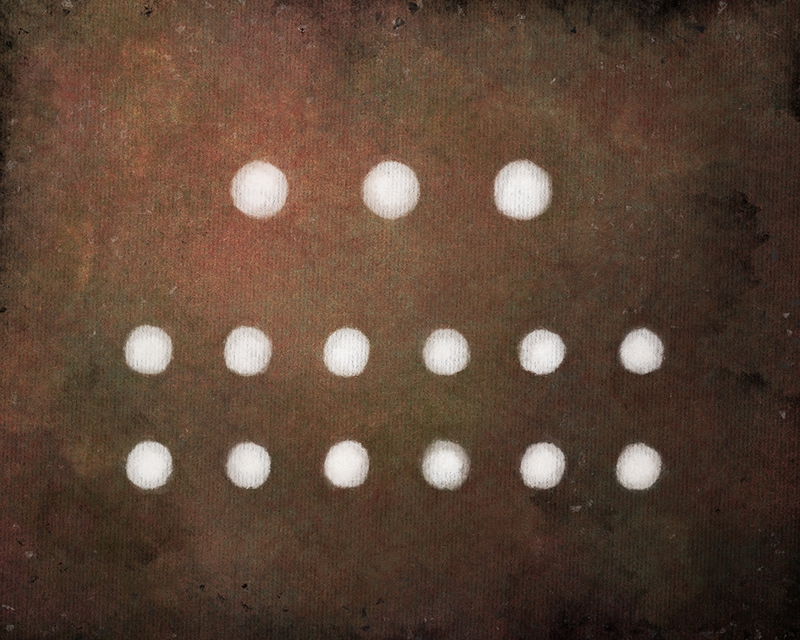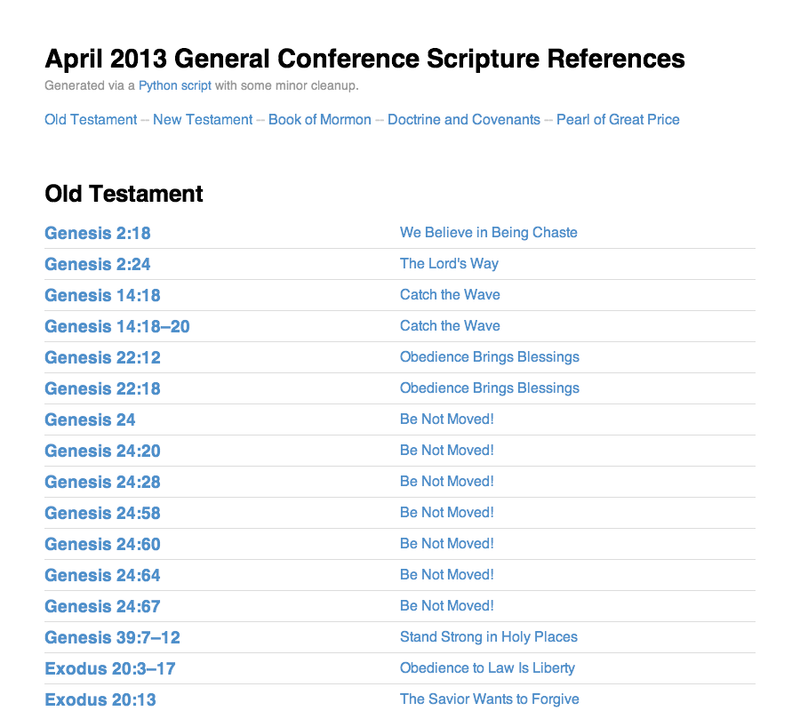I don’t know that I’ve ever talked on here about why I’m a Mormon. There’s a brief paragraph on my Mormon.org profile, but I want to go into a little more depth, since being a member of the Church of Jesus Christ of Latter-day Saints is a huge part of who I am (if, you know, you couldn’t tell by all the Mormon-related projects I do).
So, why am I a Mormon? (P. S. This will be one of my longer posts, because there are many, many reasons for my faith.)
Sense and happiness
I’m a Mormon because the gospel and the Church make sense to me. The core elements of the gospel make a congruent, consistent whole that resonates with me and feels right — family, love, sacrifice, purpose, hard work, integrity, service, etc. It has God’s signature all over it.
The gospel feels good to me. It tastes good to my soul. And it’s clear, lightful, piercing, alive. This becomes all too apparent to me when compared to the philosophies of the world, which muddy my mind and usually leave confusion in their wake.
It’s not just that the principles appeal to me in some abstract way, in theory, in my head. The more I live the gospel, the happier I am. Always. Without fail. I’ve tested this over and over again throughout my life, and it’s real. And on the other hand, whenever I choose to go against a commandment of God, I noticeably feel the loss of the Spirit, the darkening (slight or great) of my soul, and a kind of spiritual listlessness that harries my mind and heart until I repent and move back into the light. (Thank heaven for repentance and the atonement.)
Meaning
I’m a Mormon because the gospel makes everything meaningful. We’re here on the earth to become like God, in the pursuit of the unimaginable happiness that comes from living a Godlike life. And the only way for that kind of lifestyle to stick, to really become part of who we are, is for us to come to the earth and see if we’ll choose goodness and God no matter what obstacles we run into, no matter how hard it may be. Everything is part of the test, proving us herewith. Every single instant of our waking lives matters. Every thought. Every word. Every action. Every reaction. Everything is either moving us Godward or turning our hearts from him.
That meaningfulness appeals to me. The world wants to believe that cumulative chance is our sole creator, that nothing we do really matters, that there’s no grand, overarching purpose to life. I can see where they’re coming from, but I can’t help but wonder if it’s a reaction to the intimidating nature of meaning. If life truly is meaningful and everything really does matter, then we’ve got a daunting burden of responsibility and accountability on our backs. And for some it’s easier to pretend it isn’t there. It would certainly be easier to live life if nothing mattered, because then there would be no need for standards of any kind, and we could do whatever we wanted. But would that kind of an empty life be satisfying?
Personal revelation
I’m a Mormon because I crave and receive personal revelation. If things do matter in this life, and if there’s a real good and a real evil, then I want to make sure I’m on the side of good. And the gift of the Holy Ghost is how I do that — context-sensitive guidance every day of my life. It’s way better than Google. I can’t count the number of times I’ve sought inspiration or revelation in pretty much every area of my life, and I’ve always received answers.
Sometimes the answer has been to continue along the path I’m on. Sometimes it’s been to back up and change direction. (Even when that’s the last thing I want to do.) Sometimes the answer is that this is something I can decide for myself, with the promise of a safety-net warning if I choose unwisely. And I’ve found that the answer is always right — it’s always what’s best for me, even if I couldn’t see it at first.
I can’t imagine living my life without daily personal revelation — too crippling.
Questions and answers
I’m a Mormon in spite of not knowing the answer to every question. There are lots of things about the gospel I don’t yet know, and yes, there are some things that seem contradictory or conflicting or that just don’t make sense to me.
But the evidence I do have, both spiritual (those revelations I just mentioned) and physical (in the form of the Book of Mormon, the words of modern prophets, and my own experiences living the commandments, to name a few), is strong enough that I know I can trust God. I know this is his gospel and his church. Like I said earlier, it has his signature, and if there are things God hasn’t revealed yet, I’m fine with waiting till he does.
It’s kind of like science, actually. There are lots of things in the more advanced areas of science that we know are there but don’t yet know why or how they work. And yet we continue to move forward in faith that someday our proven scientific method will give us the answers. It might take a while, and we might need to get a few preliminary answers first to be able to make sense of it all, but we have faith that it will come. Why? Because we’ve seen it work over and over again. We know what we know because of people forging the unknown, doing experiments, recording the results, and sharing their data. That’s how we discovered the structure of the atom and the existence of black holes and how DNA works and the list goes on. And so I’m content to not know everything right now. It’ll come.
Science
Speaking of science, I love that the gospel lives in harmony with it (in spite of what some may think). The gospel welcomes scientific advance and opens its arms to it, because it brings us closer to truth. And we love truth.
We may disagree with some scientists’ conclusions (like the non-existence of God or the historical impossibility of the Book of Mormon), and some scientific findings may not yet make complete sense in context of what we know from the gospel, but the two are wholly compatible. In a way, they’re two sides of the same coin — spiritual truth and physical truth. Our methods for getting to those truths differ somewhat — revelation for spiritual, the scientific method for physical — but at the same time they’re not that different (the way we learn spiritual truth often involves experimenting upon the word before the revelation comes, and both rely on revelatory insights to make true progress).
Zion and the law of consecration
I’m a Mormon because Zion — a society unified in purpose, bound in love, working together without friction — appeals to the deep parts of my heart. Oh man, I love the law of consecration. I live it very imperfectly (I’m far more selfish than I’d like to be), but I love giving of my time and talents to build the kingdom. It feels right. It’s something I can throw my whole heart and mind behind without wondering if I’m making the right choice.
Christ’s Second Coming
I believe that Christ will come again. Soon. For real. (Which also implies that I believe he came the first time.)
His coming doesn’t absolve us of our stewardship toward the earth or toward each other — we need to act as if we’ll be here forever (D&C 51:16–17), even though we know it’s all only temporary. (And yet if the earth is going to be celestialized, then maybe we are going to be here forever after all.)
We’re preparing for the Second Coming by learning how to love unconditionally, how to serve each other when it’s inconvenient and uncomfortable, how to work together and rejoice in the differences that make our society stronger. We cannot be saved without each other — both those on the earth with us and those who’ve already finished their testing (see D&C 128:15).
Yes, we live the gospel imperfectly. Yes, people make mistakes, and not everyone is as Christlike as they should be. But that doesn’t make one bit of difference as to whether the gospel is true. What matters is how we treat those mistake-making people — whether we still love them and forgive them anyway. Because, of course, we too are leaving a trail of mistakes in our wake.
The wonderfully mind-bending part, though, is that even when we mess up, we can erase that trail and continue on. The point isn’t to get a perfect score in life (because we can’t). The point is to keep moving Christward, to use the atonement to become better people, to let Christ pick us back up every time we stumble. And that’s doable. His yoke is easy and his burden light. I’m a Mormon because I believe that — I believe that we make mistakes, that we’re fallen, and that only the Savior can save us.
Joseph Smith
I’m a Mormon because I believe Joseph Smith was what he said he was. I’ve read most of his writings, and his words don’t have the taint of a lucre-mad con man. They don’t carry the queasy stench of lust and worldliness that would be there if he weren’t a prophet. Someone who was casually pretending to be a prophet would almost certainly have given up the joke once the tar and the feathers came pouring down. Since Joseph didn’t, he was either insane (based on the evidence, this isn’t a viable conclusion), evil (which isn’t the feeling I get at all), or telling the truth.
I like Joseph. Was he perfect? Absolutely not. But he was a very, very good man, which comes through in his life and his works. Besides, my testimony isn’t of the mortal perfection of Joseph Smith or of any of the prophets. What I do have is a conviction that they were called of God in spite of their weakness, to be a trustworthy conduit for divine knowledge and commandments. That’s a beautiful thing — God uses us even though we’re far from perfect. And if God says I can trust someone (which he does, to me, via the Spirit, about Joseph Smith as well as President Monson), then I have no problem trusting that person.
The Book of Mormon
I’m a Mormon because mmm, I love the Book of Mormon. It’s faithful, utterly loyal to Christ. It’s a beckoning call to become more righteous, more good, by coming unto Christ. And despite the archaic language, it’s clear and understandable, like fresh mountain water. It makes sense. It feels right and good.
As a sometime fiction writer, I’m absolutely certain there is no way Joseph could have made it up. It doesn’t feel like fiction, and the level of complexity and internal consistency in the text would be impossible for Joseph Smith or Martin Harris or Sidney Rigdon or Solomon Spaulding or anyone alive in the 1800s (or now, for that matter) to concoct on their own.
Besides, the Book of Mormon would feel more like an icky MLM pamphlet if Joseph were spinning a tall tale. And it doesn’t. It’s a beautiful, poignant testimony of Christ as our Savior. I’ve read the Book of Mormon around thirty times now and with each reading I feel closer to God, more renewed in my dedication to be a good man, husband, and father. Evil and dishonest books don’t do that.
Temples
I really, really love the temple. The temples are full of light, and not just literally. I feel closer to God when I go to the temple, and I leave feeling more motivated to be better, with inspiration as to what I need to do to change. (Grammatical tangent: I just realized we always say “go to the temple” even though there’s more than one temple, which means we’re referring to it in a more general sense, like “go to church.” But the “the” slips in there somehow. I wonder when that started — maybe when there was only one temple? I also wonder if British Saints say “go to temple.” Ahem.)
I love family history work. It’s hard — sometimes really, really, really hard — but the more I learn about my ancestors, the more I love them. The gospel’s promise that I’ll meet them someday (and that this temple work I’m doing for them can have actual meaning in their lives, can be the gateway to their salvation and exaltation) is beautiful.
That’s one of the witnesses to me of the truthfulness of the gospel, by the way — we’re meant to love and serve all of God’s children, regardless of whether they’re currently on the earth or not. (And since we believe life continues after death, there’s no reason why we shouldn’t love them.)
Arts and industry
I love that one of the principles of the gospel is work. God expects us to be industrious, to make things, to improve the world. Not to be unrealistically busy, but to be proactive and productive. We are to follow in our Creator’s footsteps. I also love the gospel’s endorsement of the arts as a way to help us become more like God. (Thus Mormon Artist.)
Faith
I think it was Terryl Givens who said that there have to be evidences against the truthfulness of the gospel to make it a valid test. Otherwise there’s no need to have faith.
And the test is about learning to choose good for its own sake, learning to obey and stay loyal to God even when it sometimes doesn’t make a lot of sense. Do we still remain faithful to God and his prophets even when there seem to be contradictions? Or when they ask us to do really hard things? Or when they ask us not to do things we really want to do?
Family
I’m Mormon because family is core to the gospel, and because I’ve found that having solid, healthy family relationships is the path to happiness in this life. Family really is essential, regardless of the world’s attempts to demolish it. This has become even more clear to me now that I’m married with kids of my own. Family is where it’s at. We as a societies need to be building and healing families, not neglecting them or prying them apart or trying to replace them with fakes.
Christ and the atonement
Finally, I belong to the Church of Jesus Christ of Latter-day Saints because I believe Jesus Christ is the Son of God and that he is my Savior, my Redeemer, and my Lord. I feel strongly that this church gets me closer to the real Christ than any other church. The Book of Mormon brings me closer to Christ. The prophets bring me closer to Christ. The principles of the gospel bring me closer to Christ. Everything in the church is Christ-centered. Everything. And that’s how it should be, because Christ is our only hope. He is the only way for us to get back to Heavenly Father, and, really, the only way for us to be truly happy and at peace in this life.
That’s why I’m a Mormon.




